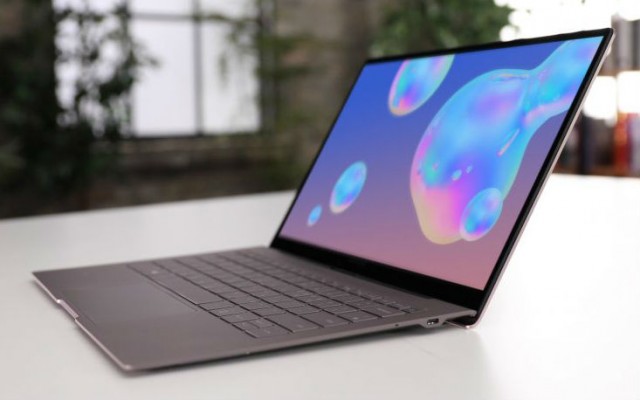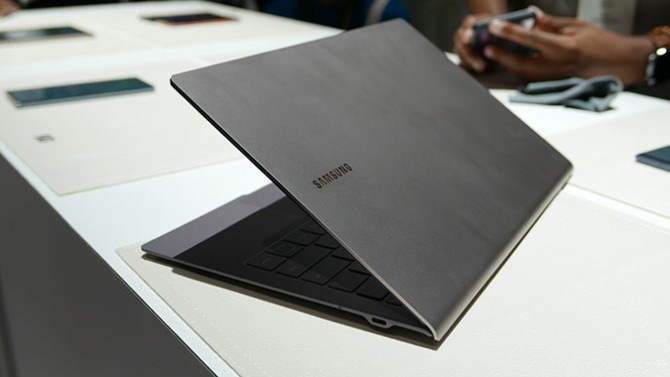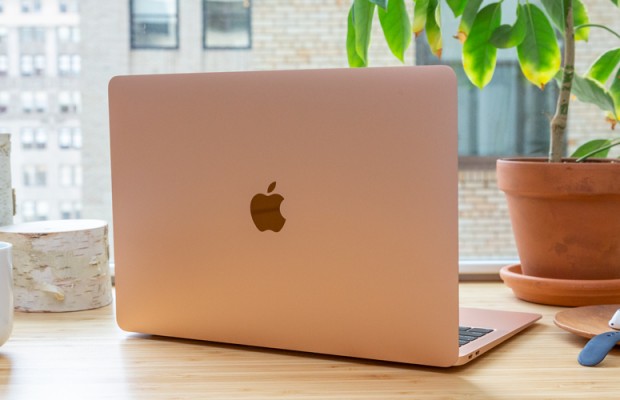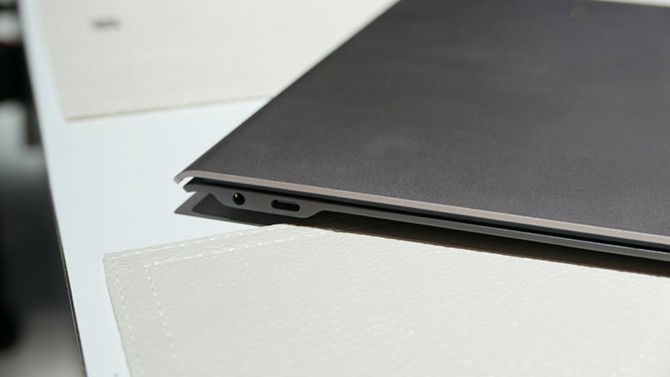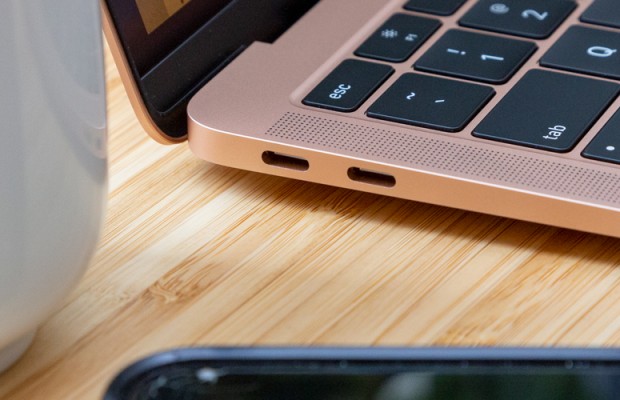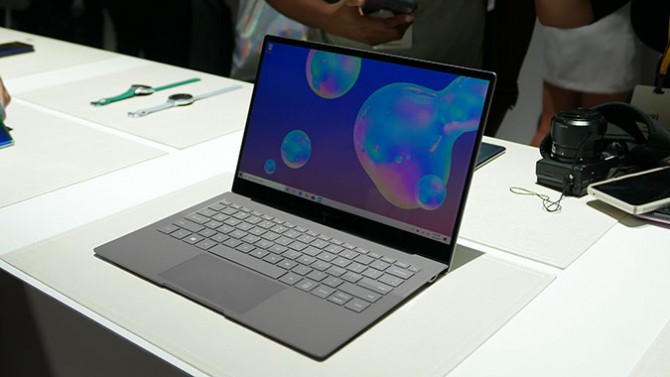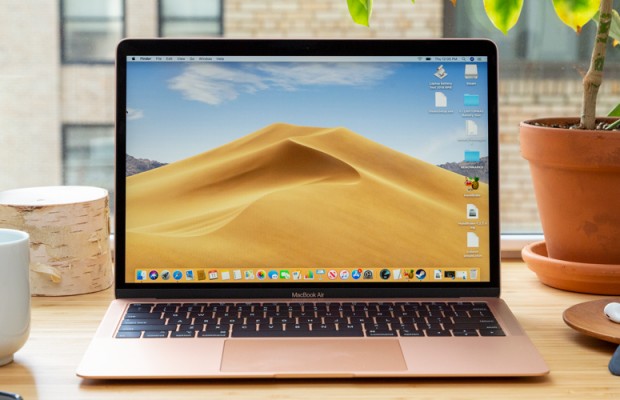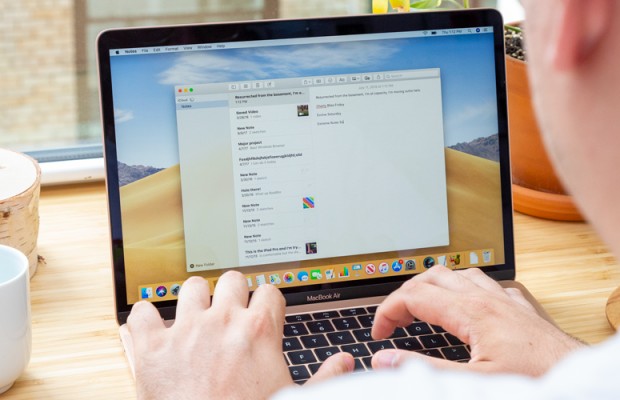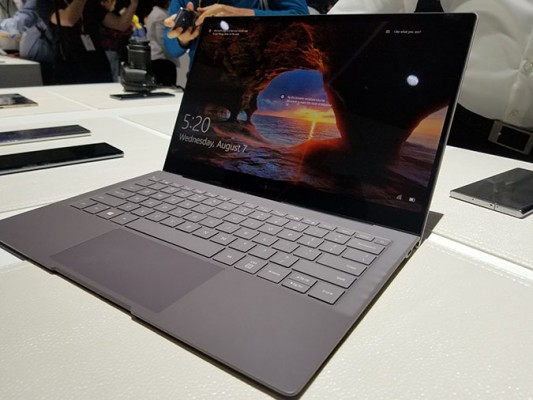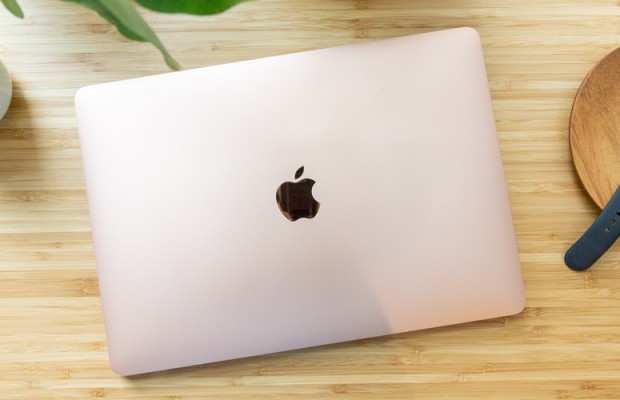Galaxy Book S vs MacBook Air: Can Samsung Finally Beat Apple?
Sign up to receive The Snapshot, a free special dispatch from Laptop Mag, in your inbox.
You are now subscribed
Your newsletter sign-up was successful
Samsung hasn't truly waged war with Apple on the laptop front as it has with smartphones. But that's about to change with the new Galaxy Book S. The Galaxy Book S is shaping up to be a serious threat to the MacBook Air thanks to its ultraslim profile, LTE connectivity and 23 hours of estimated battery life.
The Galaxy Book S won't be released until September but we were impressed with the device during our brief hands-on with it. And with Apple making only minor changes to the new MacBook Air, there is a real opportunity for Samsung to sweep in and become the defacto laptop for college students and frequent travelers.
We'll declare a winner between these devices once we've reviewed the Galaxy Book S. Until then, here's an early look at how the Galaxy Book S compares to the MacBook Air.
Pricing and Specs
| Row 0 - Cell 0 | Samsung Galaxy Book S | Apple MacBook Air |
| Starting Price | $999 | $1,099 |
| Display | 13.3-inch, 1080p touch | 13.3-inch, 1080p |
| CPU | Qualcomm Snapdragon 8cx | Intel Core i5-8210Y |
| RAM | 8GB | 8GB, 16GB |
| Storage | 128GB, 256GB | Up to 1TB |
| Ports | 2 USB-C, microSD, headphone, SIM | 2 Thunderbolt 3, headphone |
| Size | 12 x 8 x 0.5~0.2 inches | 12 x 8.4 x 0.2~0.6 inches |
| Weight | 2.2 pounds | 2.8 pounds |
Design
Slim, sleek and sturdy, both of these laptops have gorgeous chassis. But if we had to choose one based on aesthetics alone, we'd grab the Galaxy Book S.
Why? Let's start with the numbers.
Sign up to receive The Snapshot, a free special dispatch from Laptop Mag, in your inbox.
At 12 x 8 x 0.5~0.2 inches and only 2.2 pounds, the Galaxy Book S is thinner and considerably lighter than the MacBook Air (12 x 8 x 0.6~0.2 inches, 2.8 pounds).
Subjectively, the MacBook Air's design is starting to feel stale. While Apple recently refreshed the chassis with thinner bezels, the new MacBook Air still looks a lot like the model from 2012. The sleek and sturdy chassis is undoubtedly iconic; we just wish it was more exciting.
The Galaxy Book S doesn't have the same problem. A few subtle elements take the Galaxy Book S' simple design to the next level. We're especially in love with the rear of the lid, which gently curves around the deck, giving the Book S supercar-like aerodynamics.
Also, contours around the edges of the Galaxy Book S form a graceful, sweeping form, and we're more excited about Samsung's Earthy Gold and Mercury Gray color options than Apple's traditional silver, gold and Space Gray.
Ports
Get ready for the dongle life because ports are very limited on these ultrathin laptops.
The Galaxy Book S has two USB Type-C ports (not Thunderbolt 3), a microSD card slot for up to 1TB of expandable storage, a SIM card slot and a headphone jack.
The MacBook Air has even fewer ports --- two USB-C and a headphone jack --- but those USB ports are Thunderbolt 3, which means you'll get much faster transfer speeds.
Display
The Galaxy Book S' 13.3-inch, 1080p display made a good impression during our hands-on with the device.
However, we'll need to put it through our lab tests and compare it side-by-side with the MacBook Air's display before we can declare a winner.
The MacBook Air throws down quite a challenge for the Galaxy Book S. Our colorimeter showed that the MacBook Air's 13.3-inch, 1080p display reproduces 100% of the sRGB color gamut. That's a solid result, although short of the 129% premium laptop average.
Similarly, the panel reaches a peak brightness of 343 nits, which is right around the category average (346 nits).
We have reason to be hopeful that the Galaxy Book S' display will put the MacBook Air's to shame. After all, Samsung is best known for its gorgeous TVs and smartphone displays, and the panels on some of its recent laptops, like the Galaxy Book 2, have blown us away.
MORE: Best Ultrabooks: Lightweight and Travel Laptops
One advantage we already know the Galaxy Book S has over the MacBook Air is touch support.
Performance
It's hard to say which laptop will offer better performance until we put the Galaxy Book S through our benchmarking gauntlet. What we do know is that the processors in these laptops are optimized for endurance and portability, not raw power.
To that point, the Intel Core i5-8210Y CPU inside the MacBook Air scored a paltry 7,880 on the Geekbench 4 overall performance test, well short of the 14,678 category average.
ARM-based chips haven't convinced us of being a viable alternative to Intel processors. However, that could change with the Galaxy Book S' Snapdragon 8cx SoC, the first built-for-laptops chip from Qualcomm.
The Galaxy Book S will be the first laptop we test with Qualcomm's new Snapdragon 8cx chip, so we, unfortunately, don't have any scores to compare. However, based on Qualcomm's own tests, the 8cx should exceed the performance of Intel's Y-series chips and match those of a U-series Core i5.
At Computex 2019, Qualcomm released PCMark10 benchmark scores comparing the Snapdragon 8cx with a Core i5-8250U in Word, PowerPoint and Edge browser performance. The Snapdragon 8cx did well, matching or topping the Core i5 in every test but Word. Those results are promising but we'll take them with a grain of salt until we can put the Snapdragon 8cx through our own benchmarks.
Keyboard
We didn't get to spend a lot of time typing on the Galaxy Book S' keyboard, but it won't be hard to top the MacBook Air in this category.
Comfort isn't our main problem with the MacBook Air's keyboard --- although it is very shallow (0.7 millimeters) and somewhat stiff --- rather, Apple desperately needs to replace the Butterfly switches with a more reliable solution to regain customer trust.
Battery Life
What you lose in performance with these laptops is made up for in battery life.
The MacBook Air lasted 8 hours and 51 minutes on our battery test, which involves continuous web surfing over Wi-Fi at 150 nits. That's a solid result, but not as good as we were hoping from a laptop powered by a Y-series CPU.
Battery life is one area where the Galaxy Book S could trump every other laptop on the market. If the Snapdragon 8cx chip is as efficient as Qualcomm says, then the Galaxy Book S could be the first laptop to last two full days on a charge.
Samsung rates the Galaxy Book S' battery life at 23 hours, an ambitious claim and hopefully not too far off from reality. We'll find out for sure once we get in a review unit.
Value and Configurations
The Galaxy Book S starts at $999 with LTE connectivity through Verizon. Samsung hasn't listed specs for the base model or other configurations.
Now Apple's least expensive laptop, the MacBook Air starts at $1,099 with a Core i5 CPU, 8GB of RAM and a 128GB SSD. Doubling storage to 256GB brings the price up to $1,299.
Outlook
Samsung's new Galaxy Book S is shaping up to be a serious competitor to the MacBook Air, especially if its Snapdragon 8cx chip is as fast as Qualcomm says. We're also excited to find out how Samsung's 23-hour battery life claim holds up. We already know the Galaxy Book S has a gorgeous and remarkable lightweight chassis so if it gets anywhere close to that estimated runtime, then Samsung could have a real winner on its hands --- and Apple should be afraid.
Phillip Tracy is the assistant managing editor at Laptop Mag where he reviews laptops, phones and other gadgets while covering the latest industry news. After graduating with a journalism degree from the University of Texas at Austin, Phillip became a tech reporter at the Daily Dot. There, he wrote reviews for a range of gadgets and covered everything from social media trends to cybersecurity. Prior to that, he wrote for RCR Wireless News covering 5G and IoT. When he's not tinkering with devices, you can find Phillip playing video games, reading, traveling or watching soccer.
